Looking for group, afraid of finding one
I have a weird relationship with the online aspect of gaming. On one side, I enjoy interacting with other people - and games can be made even more fun with the right group of people. But on the other side, online games tug on deeply seated social anxiety. Let’s unpack and meander, shall we?
Welcome to me
I have social anxiety, which shouldn’t really be surprising - many folks do, and spending many hours in front of a computer screen for most of my life only makes things worse.
When I was little, I didn’t care much for playing with others. Plop me in front of a box of LEGOs, and I’m all set for the day. My mom had to force me to go outside and spend time with the neighborhood kids.
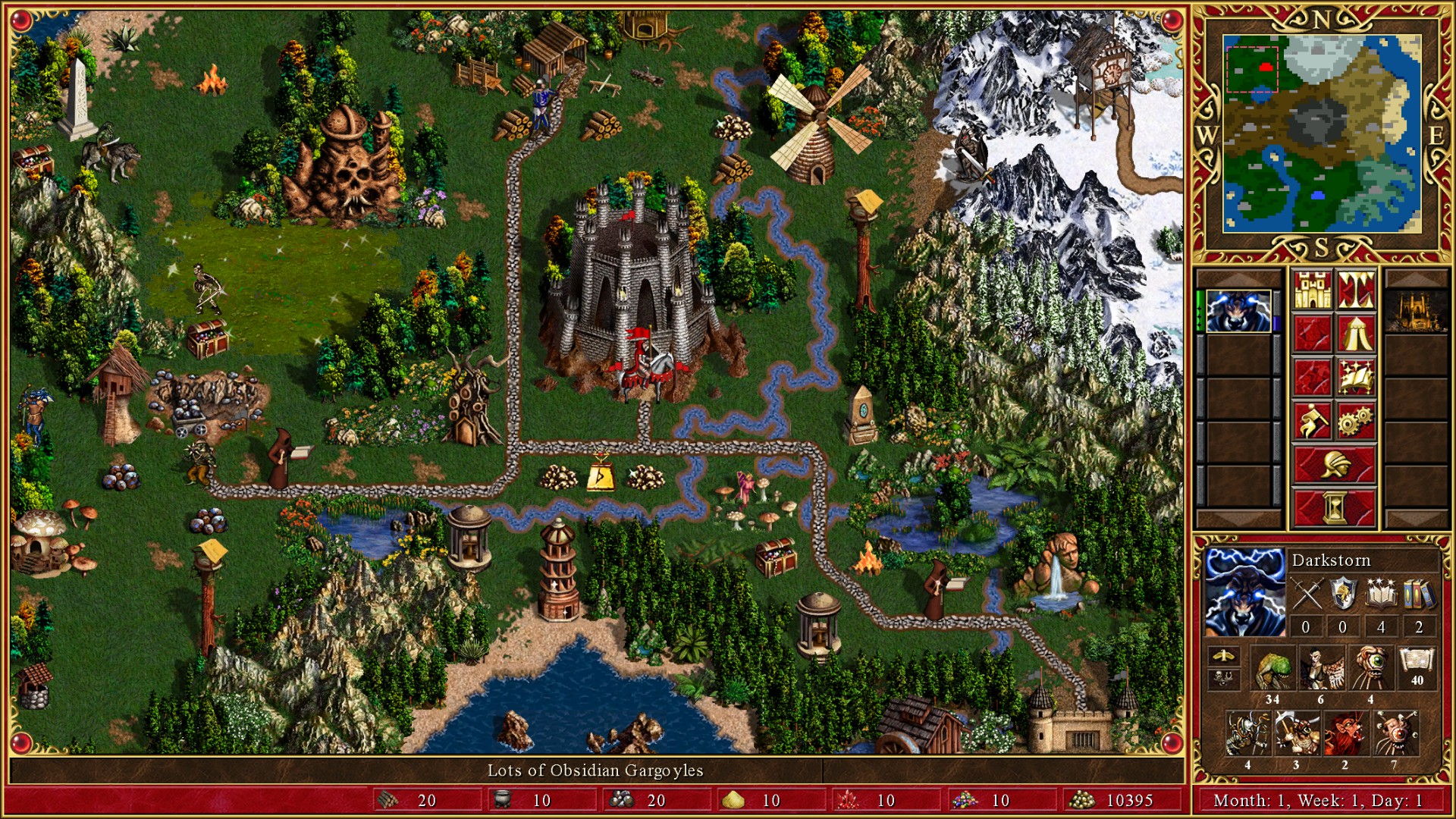 Heroes of Might and Magic III: If you’ve played it, you should be hearing the audio cue just about… now.
Heroes of Might and Magic III: If you’ve played it, you should be hearing the audio cue just about… now.
I struggled to make lasting friendships in my late teens and early twenties. It started with my school friends drifting apart - girls became a lot more interesting than hanging out with fellow nerds talking about Dungeons and Dragons and Heroes of Might and Magic… My best friend and I would lie to our parents that we’re spending time at the other person’s home while in reality we’d be both off hanging out with our girlfriends, separately. And we just never really reconnected since.
Then I moved countries, and a cultural barrier played a role too. I didn’t make connections with colleagues, nor did I seek out a community outside of work. I was alone, but I wouldn’t really say I was lonely. My hobbies kept me company - Battlestar Galactica and Skyrim were all the friends I needed.
Time passed. I’ve learned how to be more social, made some lasting friendships, and even picked up a job which requires me to have decent people skills. But as my social awareness grew, so did my social anxiety - all of a sudden I care about what others think, a little too much, always at the wrong times.
As an adult in my mid-thirties, I’ve figured out my coping mechanisms, and while not every situation is created equal, I’m largely well adjusted to the outside world.
Ugh, overly eager players
Online gaming, however, triggers this deep seated discomfort, and I haven’t been able to understand why. Yeah, this post is a bit of a self-discovery therapy session, so let’s start talking about games - this is a gaming blog after all.
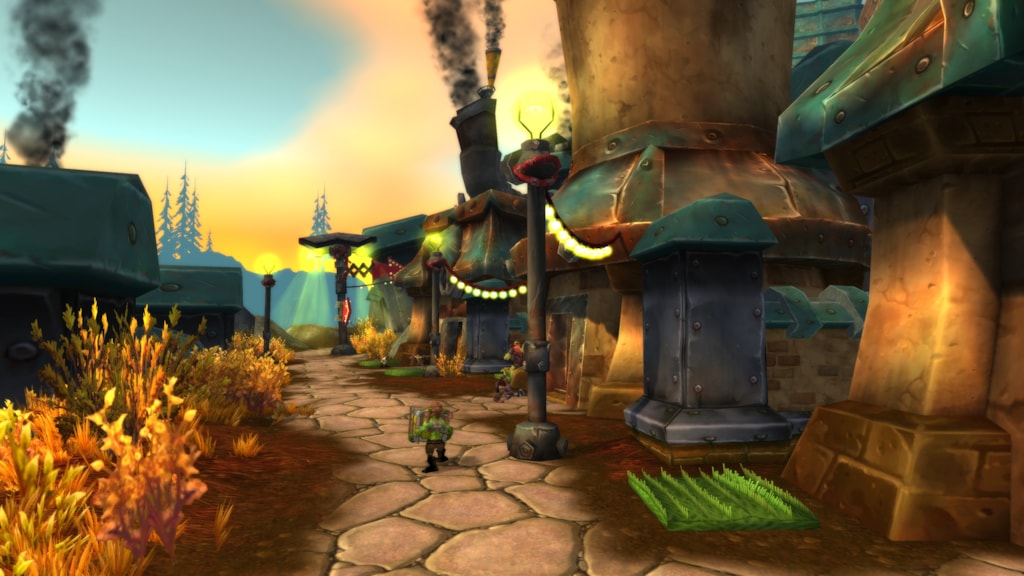 It’s fun and easy to group up with others in World of Warcraft. Unless you stress out about it, like I do.
It’s fun and easy to group up with others in World of Warcraft. Unless you stress out about it, like I do.
When thinking about online games, my first thought goes to MMOs. I’ve played some World of Warcraft during Cataclysm (and I’ve revisited WoW Classic, too), but I haven’t reached a max level. I’ve started leveling solo, and quickly made a friend. We had a great time leveling and running dungeons and talking about WoW lore. But here’s the thing - they were always online, and were always jumping on to play with me whenever I booted up the game. And what started off great, started turning into a bit of a chore. Now, every time I logged on I had to coordinate with an eager person who’s excited to find me and quest/level/dungeoneer together. But I don’t always feel like talking, or maybe I’m just logging in for 15 minutes between doing something else. And I felt bad saying no, and I did say no a couple of times… And at some point booting up the game became a chore and I just stopped playing right before hitting level 40.
I guess social anxiety got the better of me, and I just felt exhausted thinking about playing. Gaming is my safe haven, escape from a complexity of a real world, and somewhere I feel truly comfortable - and having to add a layer of social consideration to the hobby just threw me off.
This happened more than once across different games - most recently in Elden Ring. A fellow player inferred that I was trying to get to and beat Malenia (who is a Blade of Miquella, and she has never known defeat - in case you didn’t know) - and they walked me through multiple zones and helped me in a fight. Elden Ring doesn’t have chat, and we gelled through combat and occasional gestures. It was great.
That player found me on Steam, added me as a friend, and messaged me every time I booted up the game - they were willing to make the trek to wherever I was and play together. And I… I don’t know, I just wasn’t ready for the commitment.
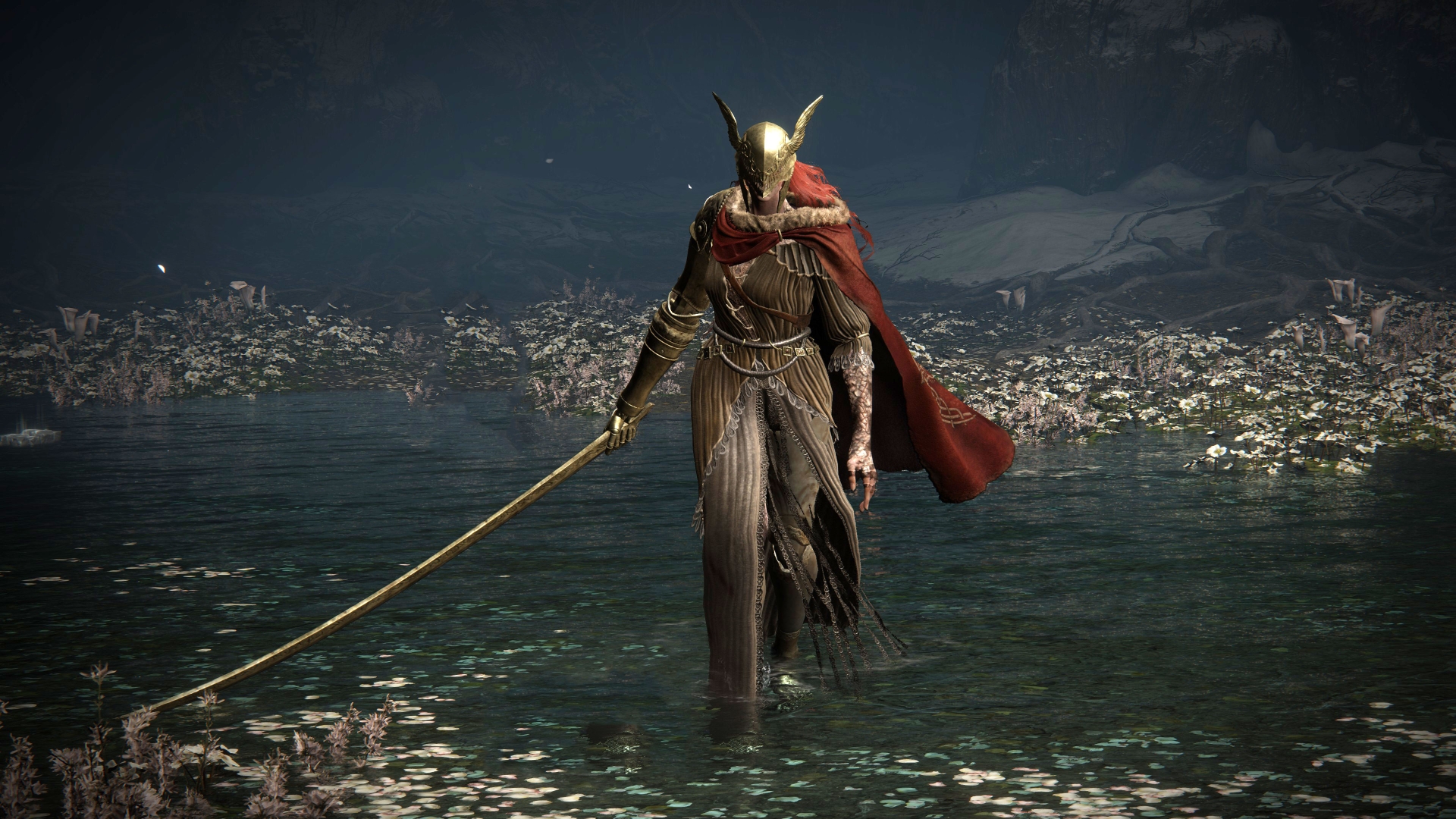 Elden Ring: “I am Malenia, Blade of Miquella, and I have never known defeat.” Those words are burned into your mind if you ever tried to fight Elden Ring’s most difficult boss, over and over again.
Elden Ring: “I am Malenia, Blade of Miquella, and I have never known defeat.” Those words are burned into your mind if you ever tried to fight Elden Ring’s most difficult boss, over and over again.
There’s also a part of me that feels like I need to commit when playing games when others. If they’re making a trek all the way to where my character is, I can’t just log out after 30 minutes of gameplay. And it makes me feel chained to my chair, and I just want to feel free.
Many in-game communities, however small or casual, require you to jump on Discord - and that’s just a commitment “no” for me. I recently picked up Old School Runescape, and every casual guild I talked to required Discord for participation. Yeah, it’s a superior chat platform, but I don’t need a superior chat experience. I just want to keep my game in a single window and not do any homework after I log off. That’s a “no” for me, I’m going clanless.
Weird? Yeah. But that’s what being human is like, we’re all weird in our own ways.
I like anonymous interactions
But Elden Ring and the Dark Souls series is also where I’ve had my best online interactions. If you’re not familiar, these games have quite a unique take on cooperative play. There’s no chat - voice or text - and there’s no long term grouping up. You can summon a player to lead you through a zone or help defeat a boss. Those interactions tend to be relatively short, and you’re only able to communicate through a relatively small set of gestures.
Hidetaka Miyazaki, the creator of the series, has talked about his inspiration behind the online play in the series. He tried to recreate the feeling of his car being stuck in a snow storm, kind strangers helping him out, and disappearing without a trace of a future connection.
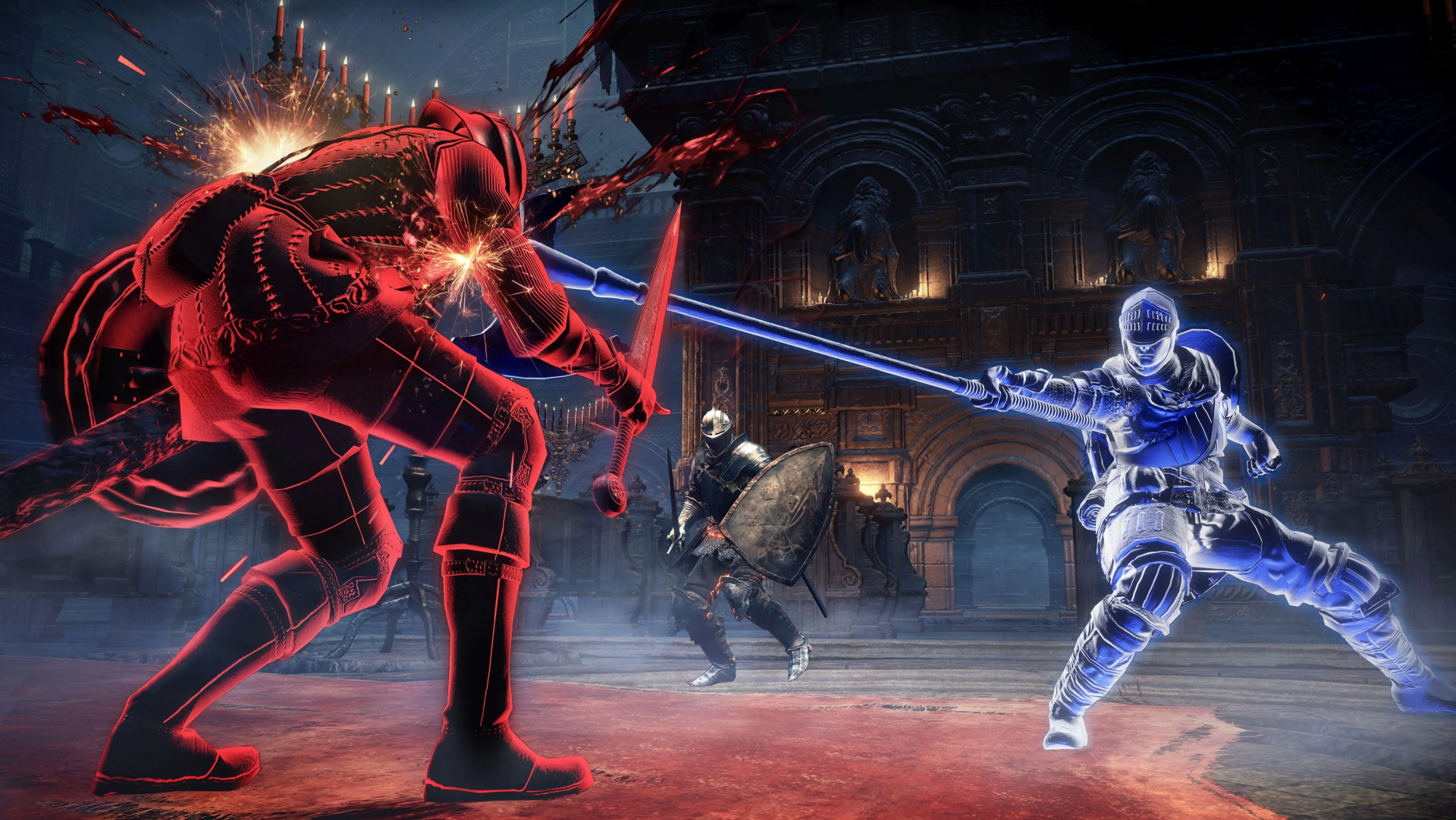 Dark Souls III: You have friendly phantoms, you have hostile invaders. None of them are here for long, and none of them can talk to you.
Dark Souls III: You have friendly phantoms, you have hostile invaders. None of them are here for long, and none of them can talk to you.
And I think there’s something beautiful about this, and it highlights the best aspects of humanity. We like helping each other, and we often do this even without a long term social reward. There’s purity to positive fleeting interactions. Yes, players in games get some in-game rewards for cooperation, but it’s satisfying to know that you’ve helped someone through a challenging experience.
Even invasions - a player-vs-player mechanic in these games has created many wholesome interactions I remember. Summoning help also risks attracting invaders - players who are there to defeat the host. An invader often squares off alone against multiple players - and some cooperators make a habit of circling up and organizing 1-on-1 duels with invaders, putting them through a tough-but-fair gauntlet. Honor isn’t dead, after all.
But I also did have an experience of being sneakily killed by a more skilled player, time and time again. And that can get unpleasant quick.
Competition can breed toxicity
Competitive elements of gameplay naturally attract competitive people (d’oh). And some communities do a great job maintaining a spirit of sportsmanship, while some turn into a cesspool of toxicity.
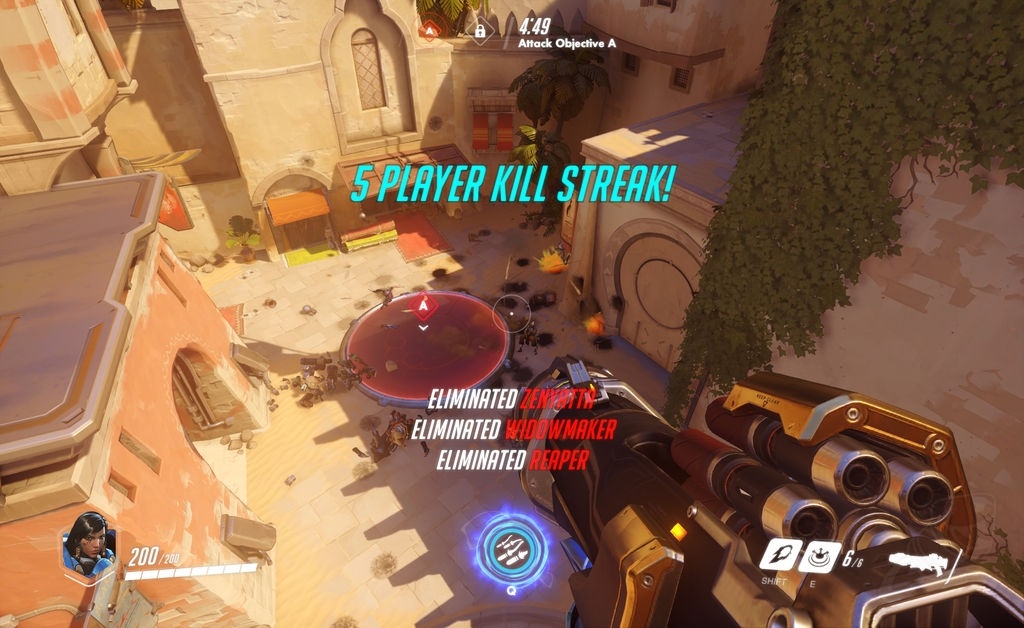 Overwatch lobbies have a tendency to get very, very toxic. “It’s not my fault we lost, I’m just on a bad team.”
Overwatch lobbies have a tendency to get very, very toxic. “It’s not my fault we lost, I’m just on a bad team.”
When Blizzard released Overwatch, I sunk a few hundred hours into the game. Overwatch is built around short (15-20 minutes), 6-vs-6 matches. You can join with an existing group, or you could join a public queue with strangers. Given my lack of desire to have social obligations in online games, I opted in for public queues - and yeah, I know that what happened isn’t surprising.
Just like in many competitive games, Overwatch public queue can get nasty, and can get nasty quick. It’s easy for players to blame their teammates, exaggerate their own achievements, or act disrespectful towards the opponents.
This toxicity pushes me to find a regular group to play with, which clashes with my desire to maintain autonomy over my time. I want the fleeting interactions with lovely strangers, not 2 pm to 10 pm Thursday raids (no disrespect to raid-lovers here, it honestly sounds awesome even if not for me). And I’m faced with a choice - suffer through the public queue toxicity or commit to social gaming obligations. And neither of those sound appealing to me.
But competition alone isn’t detrimental to negative online experience.
Warhammer Online: Return of Reckoning is a fan-ran private server for a long dead MMORPG. It emphasizes large player-vs-player battles, with hundreds of players engaging in massive “Realm-vs-Realm” combat as forces of Order engage forces of Destruction.
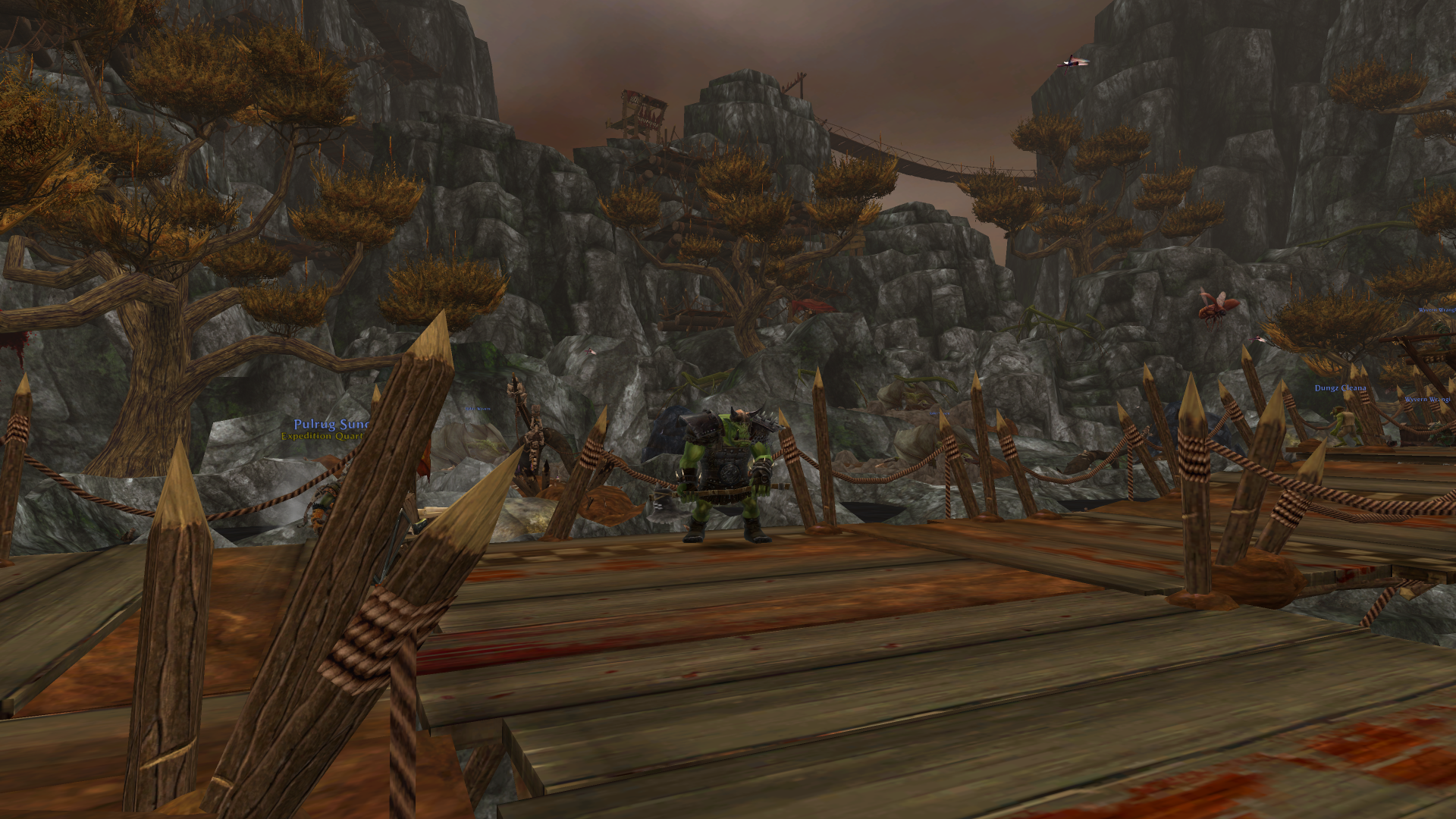 Warhammer Online: Return of Reckoning has an incredibly welcoming community, automatically places players in guilds, and seamlessly includes cooperation into every aspect of the game.
Warhammer Online: Return of Reckoning has an incredibly welcoming community, automatically places players in guilds, and seamlessly includes cooperation into every aspect of the game.
I like Warhammer Online - players get automatically placed in guilds, making guild membership a non-committal activity. Grouping up for Realm-vs-Realm combat is fast and easy, just Overwatch public queues. I get to have my cake (lack of in-game social obligations) and eat it too (play with other people).
Warhammer Online can be just as competitive as Overwatch, yet, the Return of Reckoning community can only be described as welcoming and supportive. Not once have I been badmouthed for my poor performance as a noob Black Orc tank. All I found is supportive teammates who are focused on having a great time and growing the community. The difference is stark.
So what’s different? Return of Reckoning has a passionate community focused around game preservation - Warhammer Online official servers were shut down in 2013, and a dedicated, surprisingly large fanbase kept the game alive since. The desire to keep a healthy community, a game that people want to play is higher than the desire to win a single match. It’s a difference in core philosophy.
Where I find myself these days
As I’m writing this piece, I think the tension between my desire for connection and autonomy will never fully go away, but it does inform the type of experiences I seek out.
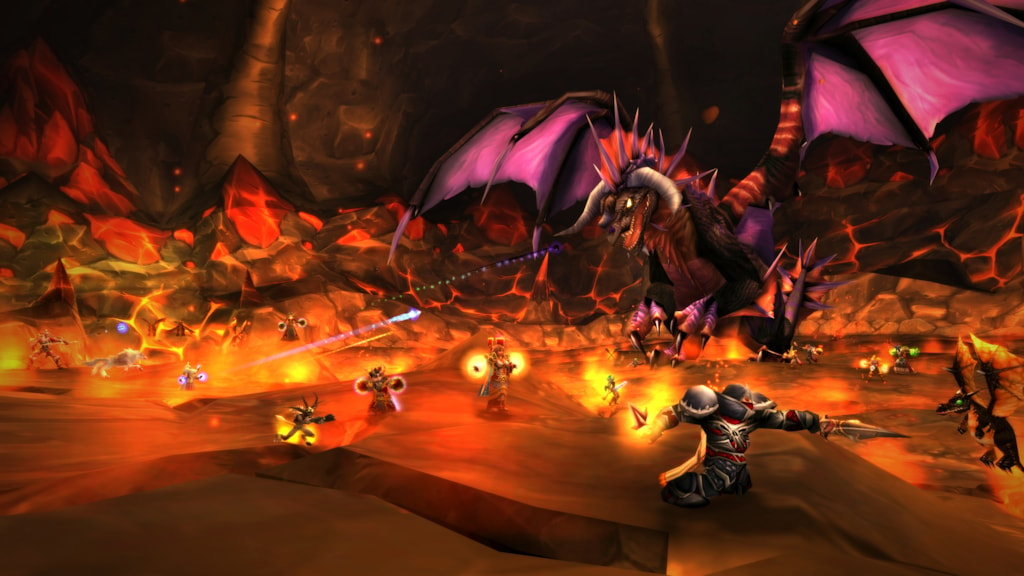 In World of Warcraft Classic social interaction is required to get through majority of the content. It’s odd that I yearn for WoW Classic model despite not looking for long term commitment with other players.
In World of Warcraft Classic social interaction is required to get through majority of the content. It’s odd that I yearn for WoW Classic model despite not looking for long term commitment with other players.
LFG stands for Looking-for-Group, a feature available in most modern online games to group up with strangers - a public queue. I generally shy away from games with LFGs, or from engaging LFGs in games if I can. Yeah, on paper LFG sounds right up my alley - a quick, fleeting engagement with others that’s time bound - but I find it to be more of a transaction than an interaction. Jumping into a queue in Overwatch or using LFG in retail World of Warcraft I might as well be playing with bots. Any and all friction is removed.
Warhammer Online: Return of Reckoning is an exception to this for whatever reason, and that’s likely due to a combination of highly supportive and engaged community and the fact that Realm-vs-Realm battles are so massive that connection isn’t really expected.
I enjoy public events, where you have to implicitly work with other strangers to accomplish a goal, without expectation of further collaboration. I like occasional roleplaying chats as my character is idling in a tavern. I like stumbling upon someone in a vast wilderness and grouping up for a short time to brave the dangers together.
These days I aim for rare spaces where I can log off mid-farming, mid-dungeon, or even mid-conversation and still be welcome when I return.
Comments
Respond directly on Bluesky (threads shown below) or Medium (view comments there).
 Rooslawn's Unmapped Worlds
Rooslawn's Unmapped Worlds